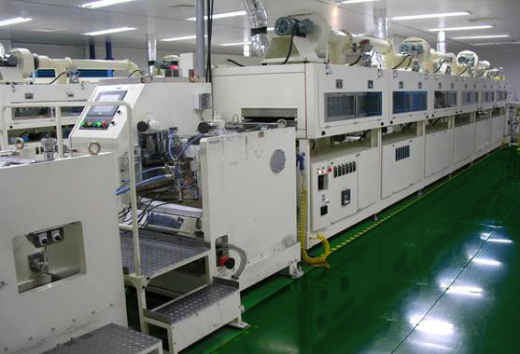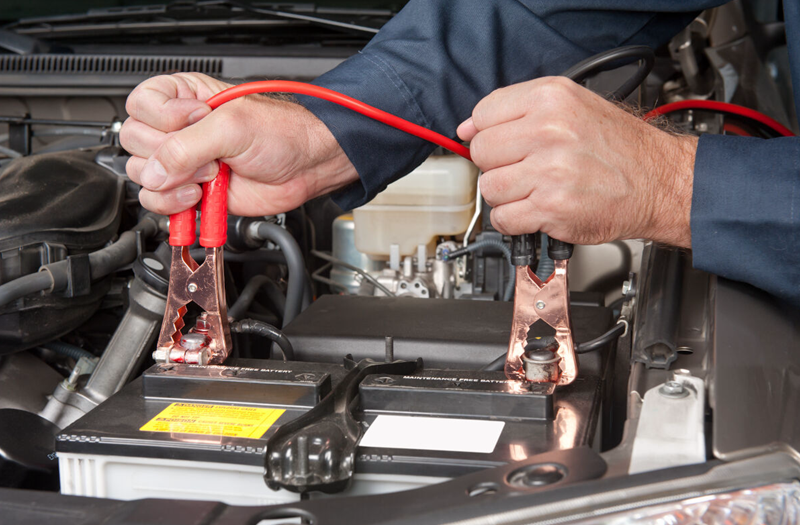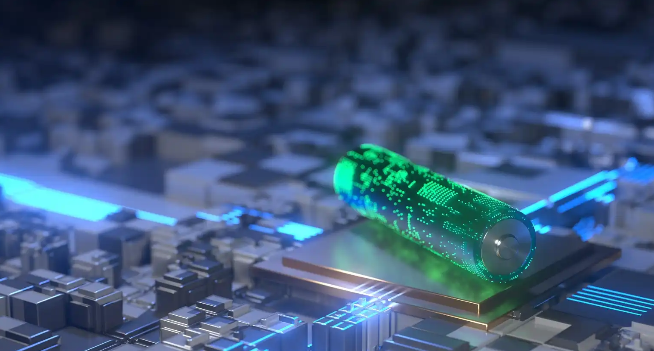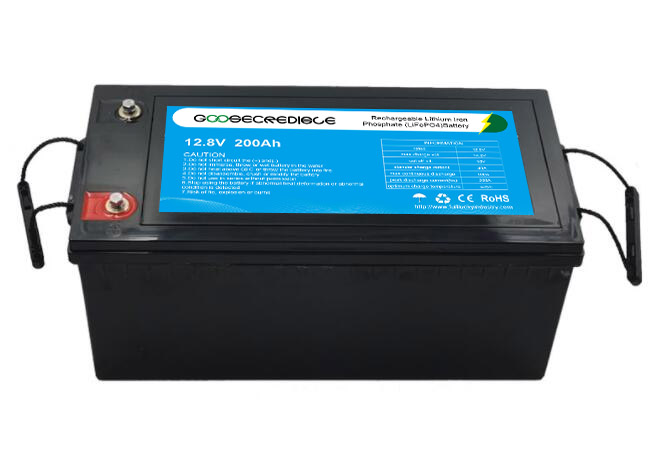Revolutionierung der Stromverteilung: Die Auswirkungen von Smart Grids und Lithiumbatterietechnologie
Einführung
Power distribution systems have been an integral part of modern society, ensuring electricity is delivered reliably and efficiently to homes, businesses, and industries. However, with the increasing demand for electricity and the need to integrate renewable energy sources, traditional power distribution systems are facing significant challenges. To address these challenges, smart grids and lithium battery technology have emerged as revolutionary solutions that have the potential to transform power distribution systems worldwide. This article explores the impact of smart grids and lithium battery technology on power distribution and discusses their benefits and challenges.
Smart Grids: Transforming Power Distribution
A smart grid is an advanced electrical grid system that incorporates digital communication technology and automation to enhance the efficiency, reliability, and sustainability of power distribution. Unlike traditional grids, smart grids enable bidirectional communication between energy producers, consumers, and grid operators in real-time. This communication allows for the integration of various energy sources, including renewable energy, and facilitates the optimization of power flows throughout the system.
One of the key advantages of smart grids is their ability to enhance energy efficiency. By utilizing advanced sensors and meters, smart grids provide real-time data on energy consumption, allowing consumers to monitor and manage their energy usage more effectively. Additionally, smart grids enable demand response programs, where consumers can adjust their energy consumption during peak demand periods, reducing the strain on the grid and preventing blackouts. This dynamic approach to energy management promotes energy conservation and reduces overall electricity costs.
Furthermore, smart grids facilitate the integration of renewable energy sources into the power distribution system. Renewable energy, such as solar and wind power, is often intermittent and decentralized. Smart grids can intelligently manage the fluctuations in renewable energy generation by efficiently balancing supply and demand, ensuring a stable and reliable power supply. This integration not only reduces greenhouse gas emissions but also decreases dependence on fossil fuels, leading to a more sustainable energy future.
Lithium Battery Technology: Enabling Energy Storage
While smart grids optimize power distribution, energy storage is crucial to address the intermittency of renewable energy sources. Lithium battery technology has emerged as a breakthrough solution for energy storage, revolutionizing power distribution systems.
Lithium batteries offer several advantages over traditional energy storage technologies. They have a high energy density, allowing for compact and lightweight designs, making them suitable for various applications, including residential, commercial, and utility-scale energy storage. Additionally, lithium batteries have a longer lifespan and higher efficiency compared to other battery technologies, ensuring reliable and cost-effective energy storage solutions.
With the integration of lithium battery technology into power distribution systems, excess energy generated from renewable sources can be stored and utilized during periods of high demand or when renewable energy generation is low. This eliminates the need for additional fossil fuel-based power plants to meet peak demand, reducing carbon emissions and promoting a greener energy mix.
Herausforderungen und Zukunftsaussichten
While smart grids and lithium battery technology offer immense benefits, their implementation faces several challenges. The integration of smart grids requires significant investment in infrastructure, including advanced meters, sensors, and communication networks. Moreover, ensuring data security and privacy is crucial to protect the integrity of the grid and consumer information.
Similarly, the widespread adoption of lithium battery technology requires advancements in battery chemistry, manufacturing processes, and cost reduction. Additionally, the disposal and recycling of lithium batteries pose environmental concerns, necessitating the development of sustainable and efficient recycling methods.
Despite these challenges, the future of power distribution looks promising with the integration of smart grids and lithium battery technology. Governments, utility companies, and technology providers are increasingly investing in these technologies to enhance the efficiency, reliability, and sustainability of power distribution systems. As advancements continue, smart grids and lithium battery technology will play a pivotal role in revolutionizing power distribution, enabling a greener and more resilient energy future.

Abschluss
The power distribution landscape is undergoing a transformative change with the emergence of smart grids and lithium battery technology. Smart grids optimize energy efficiency, integrate renewable energy sources, and enable demand response programs, while lithium battery technology facilitates energy storage and addresses the intermittency of renewable energy. Although challenges exist, the widespread implementation of these technologies promises a greener, more reliable, and sustainable power distribution system. As we embrace these advancements, the revolutionization of power distribution will pave the way for a brighter and more sustainable future.
-
 Lithiumbatterien haben die Welt der tragbaren Stromversorgungslösungen revolutioniert. Aufgrund ihrer hohen Energiedichte und langen Lebensdauer sind sie zur bevorzugten Wahl für eine Vielzahl von Anwendungen geworden, von Elektrofahrzeugen bis hin zur Speicherung erneuerbarer Energien. Unter den verschiedenen Arten von Lithiumbatterien zeichnet sich die 100-Ah-Lithium-Eisenphosphat-Batterie (LiFePO4) durch ihre außergewöhnliche Leistung und Zuverlässigkeit aus....Weiterlesen
Lithiumbatterien haben die Welt der tragbaren Stromversorgungslösungen revolutioniert. Aufgrund ihrer hohen Energiedichte und langen Lebensdauer sind sie zur bevorzugten Wahl für eine Vielzahl von Anwendungen geworden, von Elektrofahrzeugen bis hin zur Speicherung erneuerbarer Energien. Unter den verschiedenen Arten von Lithiumbatterien zeichnet sich die 100-Ah-Lithium-Eisenphosphat-Batterie (LiFePO4) durch ihre außergewöhnliche Leistung und Zuverlässigkeit aus....Weiterlesen -
 Einleitung: In den letzten Jahren gab es auf dem Gebiet der Robotik rasante Fortschritte, insbesondere bei der Entwicklung intelligenter mobiler Roboter. Diese Roboter werden in verschiedenen Branchen immer häufiger eingesetzt, von der Fertigung und Logistik bis hin zum Gesundheitswesen und der Landwirtschaft. Einer der Schlüsselfaktoren, die zur Effizienz und Leistung dieser Roboter beitragen, ist die Energiequelle, die sie...Weiterlesen
Einleitung: In den letzten Jahren gab es auf dem Gebiet der Robotik rasante Fortschritte, insbesondere bei der Entwicklung intelligenter mobiler Roboter. Diese Roboter werden in verschiedenen Branchen immer häufiger eingesetzt, von der Fertigung und Logistik bis hin zum Gesundheitswesen und der Landwirtschaft. Einer der Schlüsselfaktoren, die zur Effizienz und Leistung dieser Roboter beitragen, ist die Energiequelle, die sie...Weiterlesen -
 In today's fast-paced world, reliable and long-lasting power sources are a necessity. Whether it's for our smartphones, laptops, or even vehicles, we rely heavily on batteries to keep us connected and on the move. One such battery that has gained popularity in recent years is the 100Ah lithium battery, specifically the Lithium Iron Phosphate (LiFePO4) variant. The 100Ah LiFePO4...Weiterlesen
In today's fast-paced world, reliable and long-lasting power sources are a necessity. Whether it's for our smartphones, laptops, or even vehicles, we rely heavily on batteries to keep us connected and on the move. One such battery that has gained popularity in recent years is the 100Ah lithium battery, specifically the Lithium Iron Phosphate (LiFePO4) variant. The 100Ah LiFePO4...Weiterlesen -
 In today's fast-developing technological era, lithium batteries, as a leader in the field of energy storage, are leading the wave of global energy transition and green development. In order to help you better understand lithium batteries, this article will thoroughly explore their working principle, application field, technological progress, and future development trends to provide you with strong support for your...Weiterlesen
In today's fast-developing technological era, lithium batteries, as a leader in the field of energy storage, are leading the wave of global energy transition and green development. In order to help you better understand lithium batteries, this article will thoroughly explore their working principle, application field, technological progress, and future development trends to provide you with strong support for your...Weiterlesen -
 With the increasing demand for portable electronic devices, the need for high-capacity, lightweight and durable batteries has become more significant. Lithium batteries have emerged as a popular choice because of their high energy density, long cycle life, and low self-discharge rate. However, a single lithium battery may not provide enough power for some applications, which is why it is necessary...Weiterlesen
With the increasing demand for portable electronic devices, the need for high-capacity, lightweight and durable batteries has become more significant. Lithium batteries have emerged as a popular choice because of their high energy density, long cycle life, and low self-discharge rate. However, a single lithium battery may not provide enough power for some applications, which is why it is necessary...Weiterlesen -
 Energie ist ein wesentlicher Bestandteil unseres Lebens, und da wir immer mehr elektronische Geräte nutzen, wächst der Bedarf an zuverlässigen und effizienten Energielösungen. Eine der aufregendsten Entwicklungen in diesem Bereich ist die Einführung von Lithium-Eisenphosphat-Batterien (LiFePO4). LiFePO4-Batterien sind ein wiederaufladbarer Batterietyp, der immer beliebter wird, weil...Weiterlesen
Energie ist ein wesentlicher Bestandteil unseres Lebens, und da wir immer mehr elektronische Geräte nutzen, wächst der Bedarf an zuverlässigen und effizienten Energielösungen. Eine der aufregendsten Entwicklungen in diesem Bereich ist die Einführung von Lithium-Eisenphosphat-Batterien (LiFePO4). LiFePO4-Batterien sind ein wiederaufladbarer Batterietyp, der immer beliebter wird, weil...Weiterlesen -
 As a common type of battery, lead-acid batteries are widely used in many areas such as automobiles, UPS power supplies and electric vehicles. However, many users often ignore battery maintenance and care during use, resulting in shortened battery life. This article provides some practical tips on how to extend the life of lead-acid batteries to help you better maintain and...Weiterlesen
As a common type of battery, lead-acid batteries are widely used in many areas such as automobiles, UPS power supplies and electric vehicles. However, many users often ignore battery maintenance and care during use, resulting in shortened battery life. This article provides some practical tips on how to extend the life of lead-acid batteries to help you better maintain and...Weiterlesen

